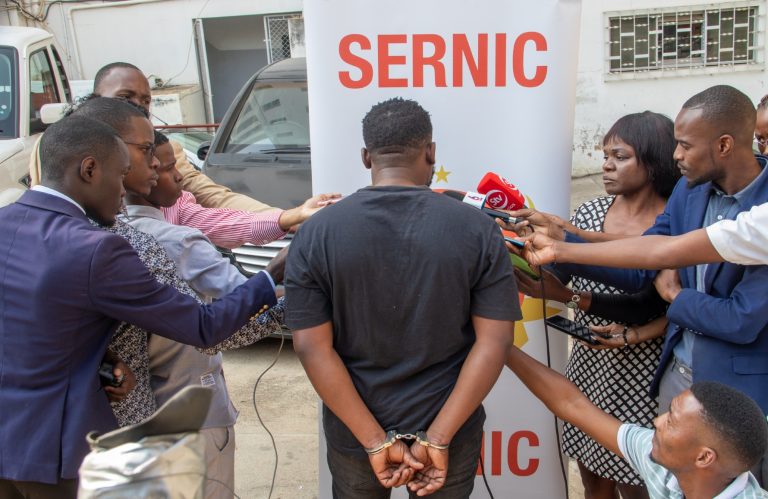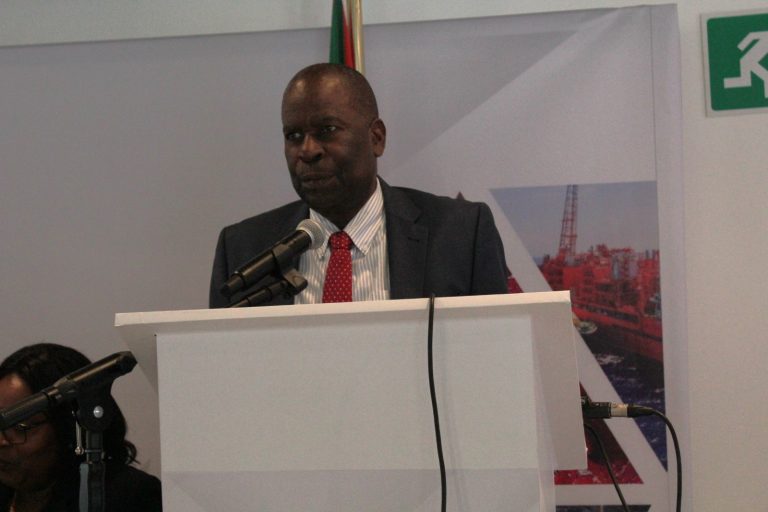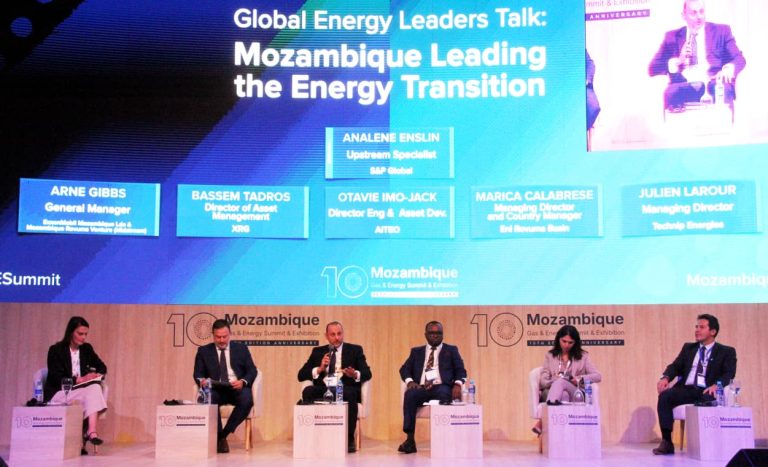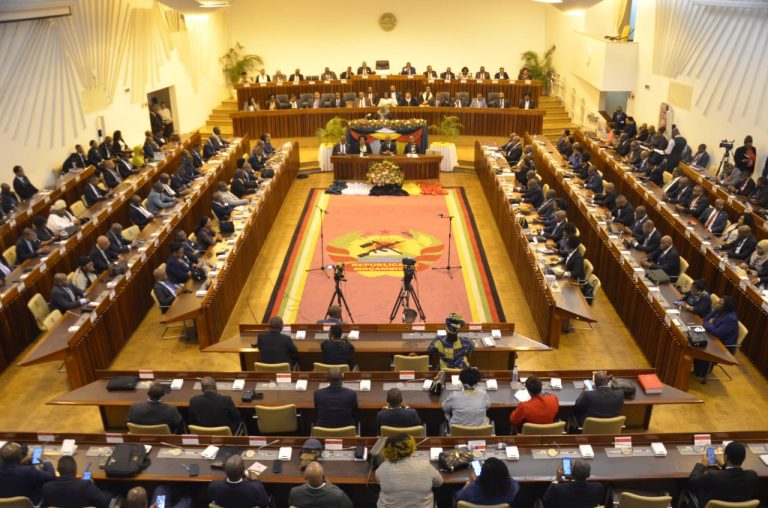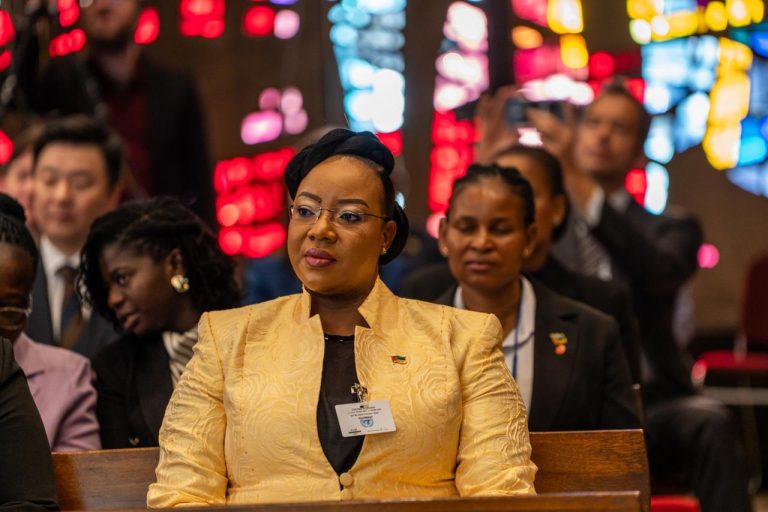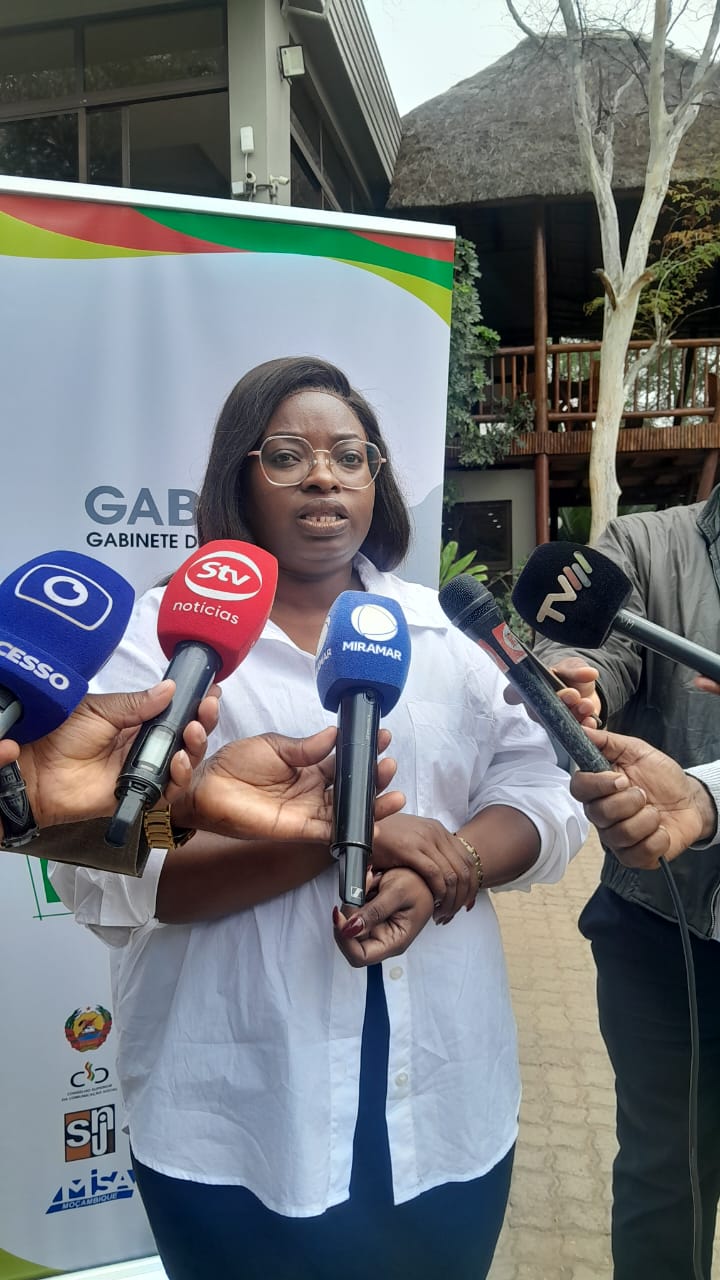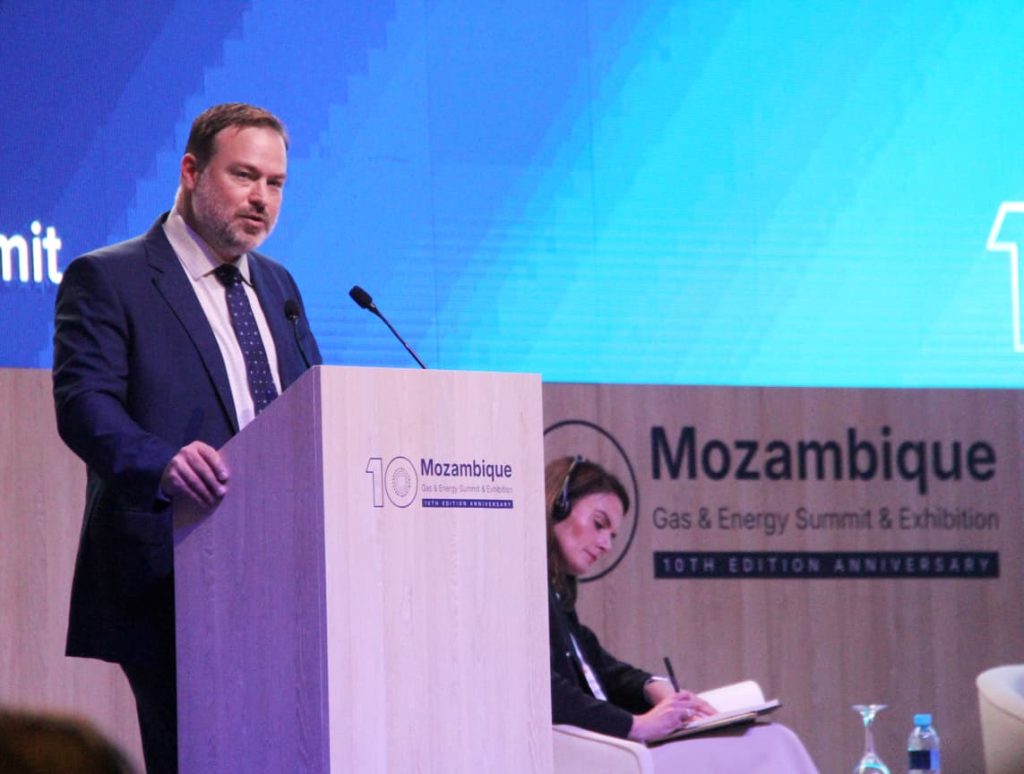
Director-geral da ExxonMobil Moçambique, Arne Gibbs, falando na abertura da 10.ª Cimeira e Exposição de Gás e Energia em Maputo
Maputo, 23 Sep (AIM) – The US oil and gas company ExxonMobil, which is leading the construction and operation of future natural gas liquefaction and related facilities for the Area 4 deep water block off the northern Mozambican province of Cabo Delgado, has reiterated that security remains an essential factor for the implementation of its projects.
The project is operated by Mozambique Rovuma Venture (MRV), a joint venture owned by ExxonMobil, the Italian energy company ENI, and CNPC of China.
According to Arne Gibbs, the General Manager of ExxonMobil Mozambique, who was speaking at the 10th edition of the country’s Gas and Energy Summit and Exhibition, which began on Monday, in Maputo, the fight against Islamist terrorists in some districts of the northern province of Cabo Delgado is crucial so that the projects may carry on in a sustainable development environment.
Gibbs said that the final investment decision (FID) will only be possible after the force majeure clause, which led to the suspension of operations by the French company TotalEnergies in Rovuma Basin Offshore Area 1, which is adjacent to Area Four, is lifted. The project was suspended in April 2021, when TotalEnergies declared force majeure, following a major terrorist attack against the town of Palma.
“After the force majeure clause is lifted and the safety environment is improved, production could begin in 2029/2030”, said Gibbs. “ExxonMobil is completing the technical studies and preparatory activities that could culminate in the final investment decision. We are working with the Development Plan and partners, always assuming that the force majeure will be lifted. Otherwise, there could be an impact on the timeline”.
He recalled that the investment exceeded 300 million US dollars in the initial phase alone, including infrastructure expansion in the Afungi peninsula, the creation of over 400 direct jobs and an immediate boost to the national economy.
Gibbs emphasized that the benefits begin immediately after the investment decision: “The revenues, taxes, jobs, and opportunities for the country happen immediately, not just when the gas starts flowing”, he said.
The project involves the construction of underwater gas pipelines at a depth of over 1,500 metres, the transport of the gas to Afungi, and liquefaction in a plant with the capacity to process 18 million tonnes per year.
“We believe that Mozambique’s future in the energy sector is bright. With stability and cooperation, this will be a transformative milestone not only for the country, but for the entire region”, Gibbs said.
(AIM)
PC/ Ad/pf (425)


